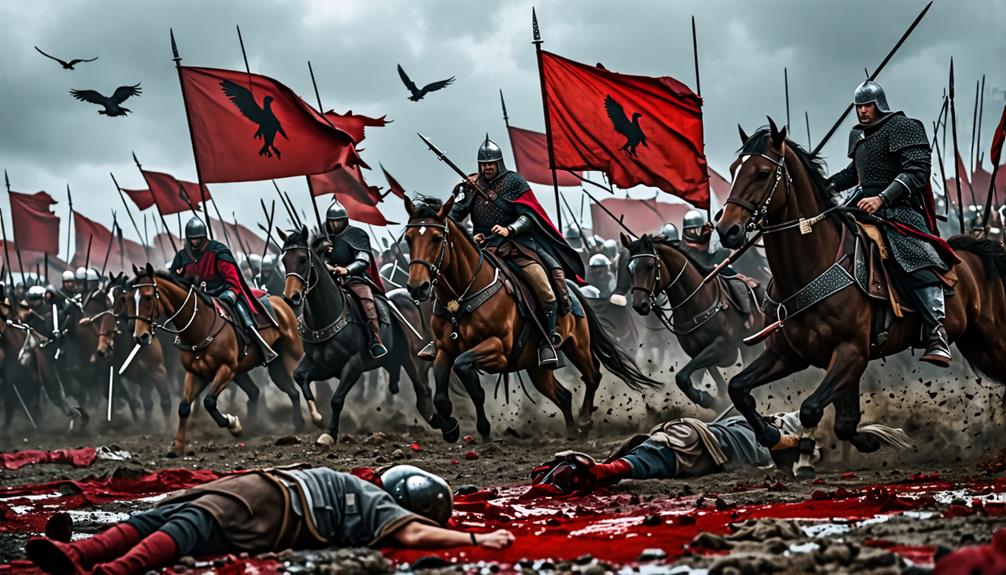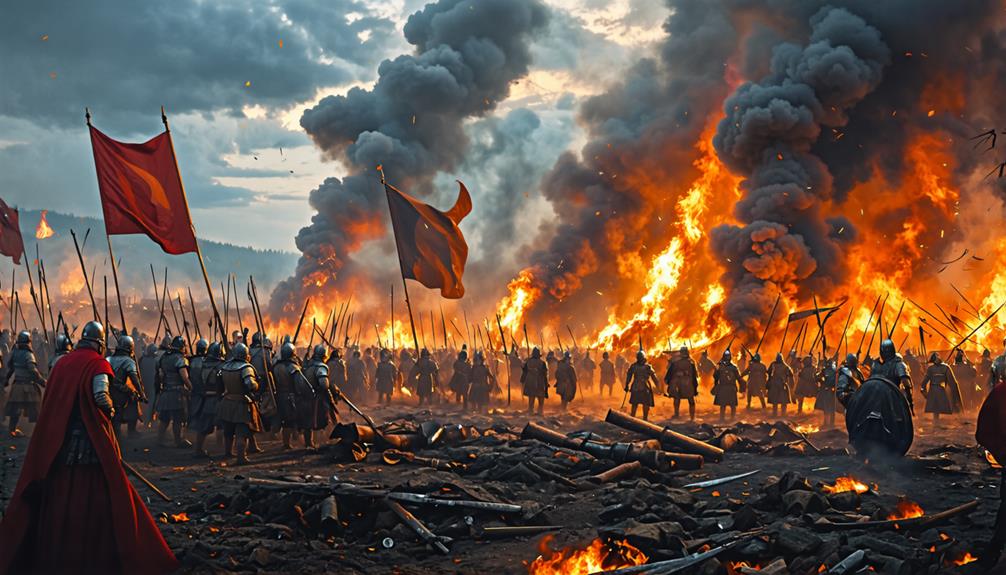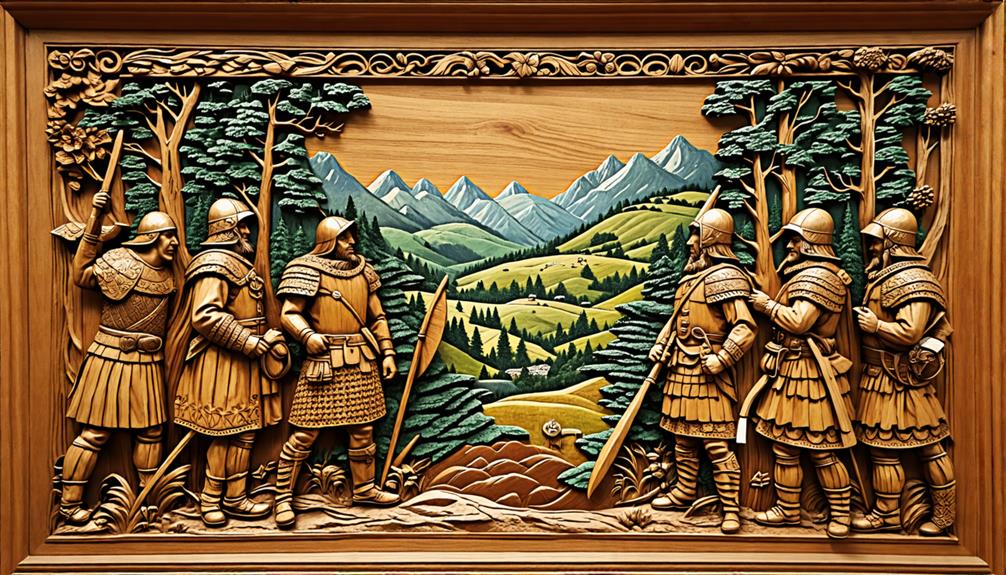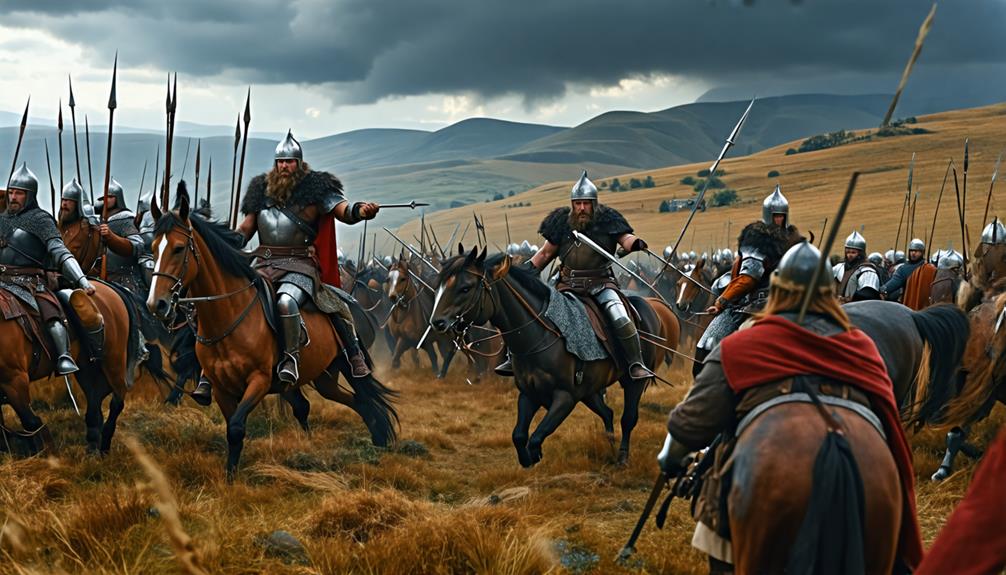Imagine a world where the Huns, led by Attila, were decisively defeated by a coalition of Germanic tribes. This pivotal moment would have reshaped the course of European history.
How would this alternate timeline have unfolded, and what would the consequences have been?
Let's explore the fascinating possibilities of this reimagined past and discover how it could have altered the future of empires, cultures, and everyday life on the continent.
The Battle

In an alternate timeline, the Battle of the Catalaunian Plains in 451 AD could have ended with a decisive Hunnic victory over the Roman-Visigoth alliance. One theory is that this would have allowed Attila the Hun to conquer much of Western Europe, leading to a very different medieval period dominated by Hunnic culture and influence.
It's possible that a triumphant Hunnic Empire could have acted as a bulwark against the later Islamic conquests, changing the religious landscape of Europe and the Mediterranean. Some speculate that if the Huns fell apart like they did in our timeline, it might've enabled the Visigoths or another Germanic tribe to fill the power vacuum and establish a stronger kingdom in the former Western Roman Empire.
While there's no historical record of it, a similar large-scale clash of nomadic steppe warriors against European forces could theoretically have occurred centuries later, such as if the Mongols under Genghis Khan or his successors had pushed farther westward. The possible outcomes, like a more thorough Mongolian conquest of Europe, are intriguing to ponder but impossible to know for certain.
Germanic Unity
In an alternate timeline, a unified Germanic kingdom emerging from Attila's empire could have significantly changed European history. One theory is that this centralized power would have filled the void left by the Western Roman Empire's collapse, potentially accelerating the development of feudalism.
It's possible that instead of fragmented kingdoms, a cohesive Germanic state would have reshaped the political and cultural landscape of medieval Europe.
While this scenario didn't occur in the aftermath of Attila's reign, it could have happened at a later date under different circumstances. For example, if Charlemagne had successfully united the Germanic tribes in the 8th century, it might've led to a similar outcome.
Ultimately, the impact of such a unified Germanic kingdom on European history remains a fascinating subject for historical speculation.
Attila's Downfall

In this alternative history scenario, Attila the Hun's decisive defeat at the Battle of the Catalaunian Plains in 451 AD could have led to the collapse of the Hunnic Empire.
One theory suggests that without Attila's strong leadership, the empire would have fragmented, allowing the victorious Germanic tribes to fill the power vacuum.
This could have meant significant changes to the course of European history, with the Germanic tribes potentially establishing stronger kingdoms and influencing the region's development.
It's worth noting that similar scenarios did occur later in history, such as the defeat of the Avars by Charlemagne in the 8th century, which led to the rise of the Carolingian Empire.
Shifting Power Dynamics
One theory suggests that if Attila had been defeated, it could have led to a more fragmented Europe, with various Germanic tribes vying for control over former Hun territories. The Visigoths, Ostrogoths, Franks, and others might've focused on consolidation and expansion, potentially setting the stage for the emergence of medieval Europe.
It's worth noting that while Attila's defeat didn't occur as described, similar power shifts happened later in history, such as the fall of the Western Roman Empire and the rise of various kingdoms in its wake. These events, like the hypothetical defeat of Attila, had far-reaching consequences for the political and cultural landscape of Europe.
Cultural Preservation

Had Attila and the Huns been defeated, it's possible that various cultural traditions and artifacts from the Roman Empire and Germanic tribes would have been better preserved.
One theory is that there would have been less destruction of Roman cities, allowing their art and architecture to endure longer. Additionally, Germanic oral histories, craftsmanship, and pagan beliefs may have continued thriving without the Huns' influence.
It's important to note that while the Huns weren't successful in this alternate scenario, similar invasions and cultural suppression occurred later in history by other groups, such as the Mongols and the Ottomans.
The impact of these later invasions on cultural preservation would depend on the specific circumstances and the invading group's attitudes towards the conquered peoples' traditions and artifacts.
Linguistic Divergence
If the Huns had been defeated, it's possible that Germanic languages would have evolved independently without Hunnic influence.
Gothic, Frankish, and other tongues may have flourished, potentially leading to greater linguistic diversity across Europe.
One theory is that there would be fewer loanwords and grammar influences from Hunnic present in these languages.
However, it's important to note that similar linguistic divergence could have occurred at a later date due to other historical events or conquests by different groups.
Altered Historical Trajectory

In an alternate history where the Huns were defeated, Europe's trajectory would have diverged significantly.
One theory is that a more unified Germanic culture could have dominated the continent, potentially accelerating the formation of nation-states. The Byzantine Empire might've expanded its reach further west without Hunnic interference, while Christianity's spread could have been delayed or followed a different course.
It's possible that a similar scenario could have played out at a later date under a different group. However, the specific timing and circumstances of the Huns' rise and fall had a profound impact on the geopolitical landscape of the time.
A defeat at a critical juncture would have reshaped the balance of power and altered the course of European history in ways that are difficult to predict with certainty.
Conclusion
Imagine you're a Germanic warrior, standing victorious over the vanquished Huns. You've changed the course of history, like a boulder altering a river's path.
Your triumph has sown the seeds for a united Germanic kingdom, a mighty oak that'll shape the landscape of Europe. The echoes of Roman and Germanic culture will resonate through the ages, as your descendants forge new nations and identities.
Your victory is the butterfly that flaps its wings, creating ripples through time.

Leave a Reply